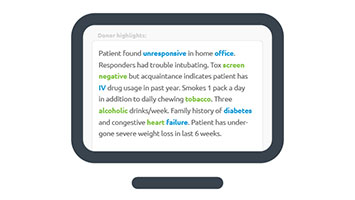in focus
UNOS data scientists explore organ donor admission text to help understand and predict how kidney acceptance decisions are made.
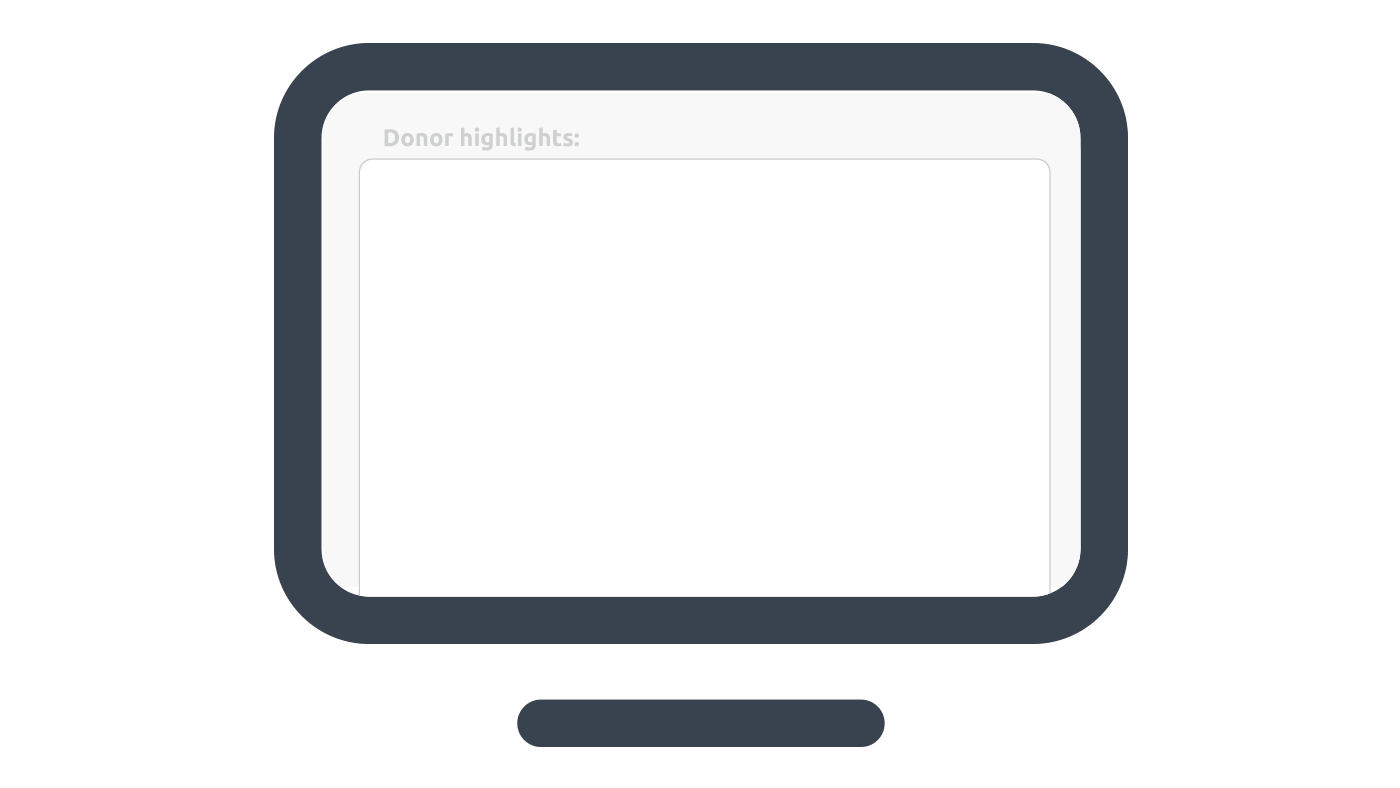
Natural language processing models applied to deceased organ donor admission text may offer additional insights into kidney discard behavior.
“The potential to improve existing kidney utilization prediction models is limited if further attempts are based solely on the same traditional OPTN data sources,” said United Network for Organ Sharing data science manager Andrew Placona. “Often the only way to improve model performance is by incorporating new data sources or finding new insights within the data.”
Placona is corresponding author in a new proof-of-concept article published in the American Journal of Transplantation that explores the possibility of using natural language processing to mine the free-text fields of deceased organ donor registration forms for information that might predict kidney utilization rates. Existing predictive algorithms have only leveraged structured data, such as yes or no questions, which may not provide sufficient detail to enable fully informed organ offer acceptance.
“We’re using data that traditionally UNOS has never touched,” Placona said. “No one has really looked at the clinical text yet and it’s gone unnoticed for decades because it is not easy data to work with.”
Read the abstract and see the models here
Placona, A., Martinez, C., McGehee, H., Carrico, B., Klassen, D.K. and Stewart, D. (2019), Can Donor Narratives Yield Insights? A Natural Language Processing Proof of Concept to Facilitate Kidney Allocation. Am J Transplant. Accepted Author Manuscript. doi:10.1111/ajt.15705
In focus
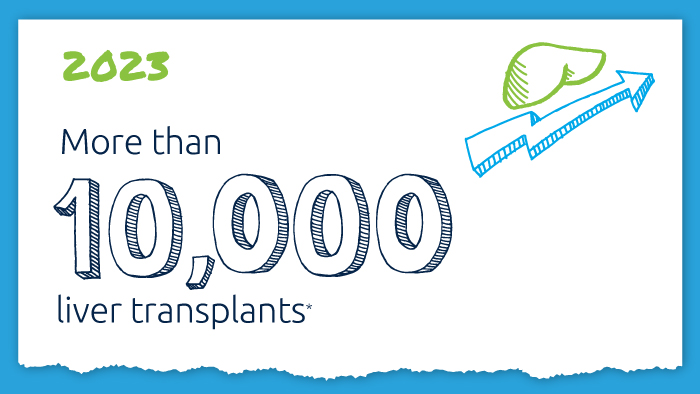
A decade of record increases in liver transplant
10,660 liver transplants, the most ever in a year.
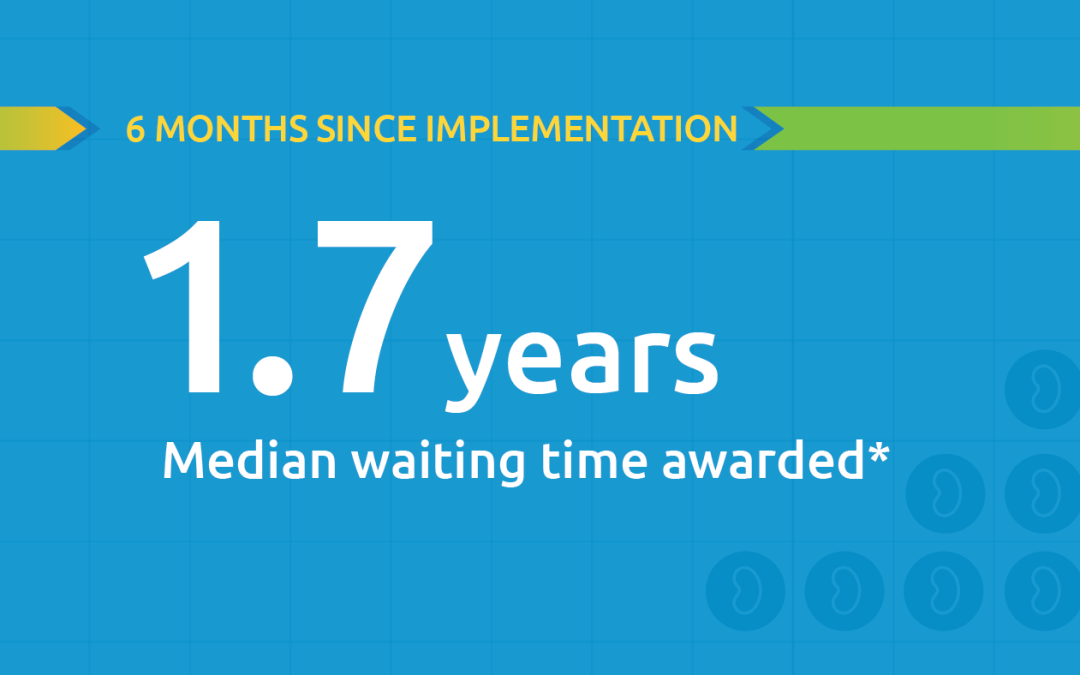
Black kidney candidates are receiving waiting time modifications, helping them get the organs they need
Latest kidney monitoring report shows two new kidney polices are working as intended

Research in focus: examining organ offers
Three recent studies from UNOS researchers examine offer acceptance practices and impact of Offer Filters tool.
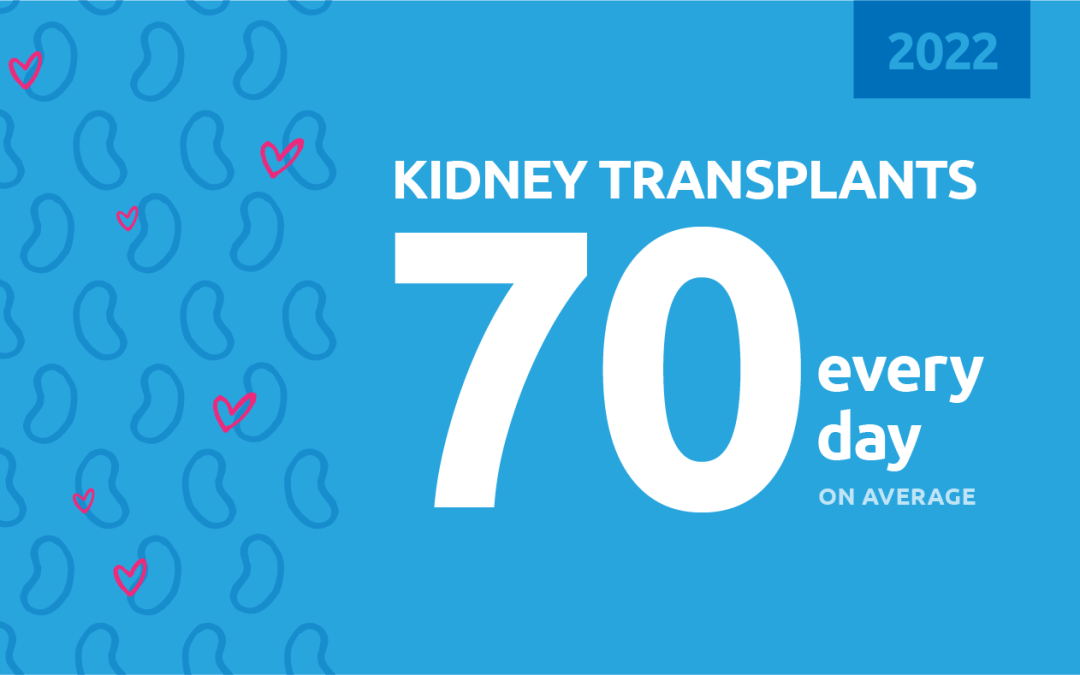
New milestone reached in kidney donation and transplant
For the first time, more than 25,000 kidney transplants were performed in a single year

